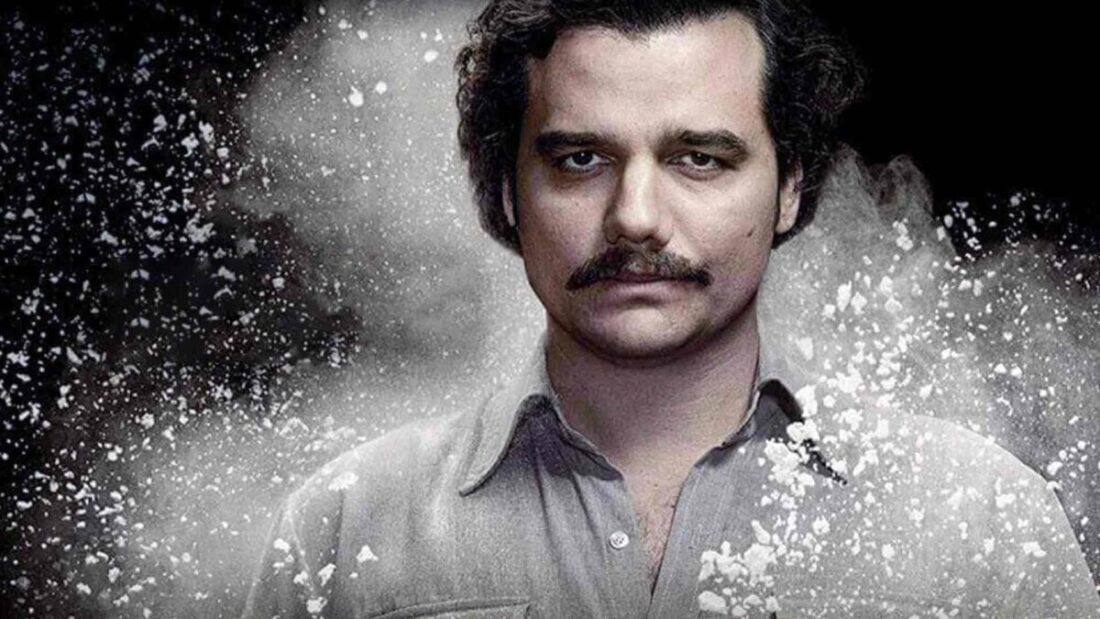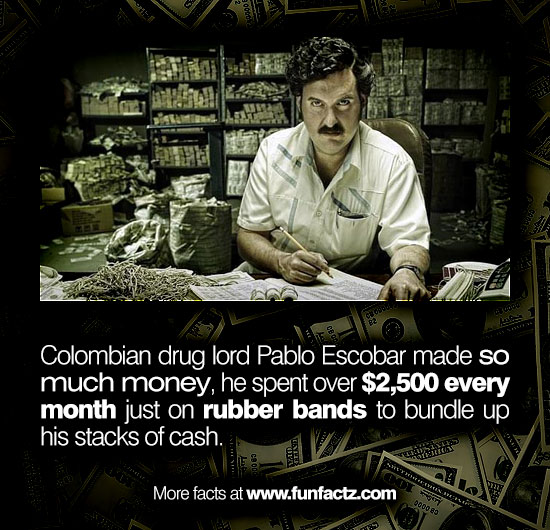How Much Money Pablo Escobar Made
When it comes to the world of illicit trade and organized crime, few names resonate as powerfully as Pablo Escobar. As the infamous leader of the Medellín Cartel, he was not just a drug trafficker; he was a symbol of the vast wealth generated by the cocaine industry in the 1980s and early 1990s. His financial empire reached staggering heights, making him one of the richest men in modern history. Understanding the sheer magnitude of his wealth provides insight into the lengths he went to build his empire. Escobar's financial prowess was not limited to drug trafficking; it extended into various legitimate businesses as well, creating a complex tapestry of income sources that fed his insatiable appetite for power and influence.
As we delve into how much money Pablo Escobar made, we need to consider various factors that contributed to his wealth, including the scale of his operations, the extensive network he built, and the socio-political landscape of Colombia during his reign. Escobar's story is not just one of riches; it is a cautionary tale of how wealth can corrupt and lead to devastating consequences.
Ultimately, the question of how much money Pablo Escobar made is not merely about numbers; it is about understanding the legacy of a man whose impact reached far beyond his financial achievements. In this article, we will explore his biography, delve into the specifics of his wealth, and uncover the intricacies of his financial empire.
Who Was Pablo Escobar?
Pablo Emilio Escobar Gaviria, born on December 1, 1949, in Rionegro, Colombia, was a Colombian drug lord and narcoterrorist who founded and led the Medellín Cartel. He became one of the wealthiest criminals in history. Here is a brief overview of his biography:
| Detail | Information |
|---|---|
| Full Name | Pablo Emilio Escobar Gaviria |
| Date of Birth | December 1, 1949 |
| Birthplace | Rionegro, Colombia |
| Date of Death | December 2, 1993 |
| Occupation | Drug Lord, Businessman |
| Known For | Leadership of the Medellín Cartel |
How Much Money Did Pablo Escobar Make During His Reign?
Estimating how much money Pablo Escobar made is a challenging task due to the clandestine nature of his operations. However, it is widely believed that at the height of his power, Escobar's income was astronomical. Various estimates suggest that he made between $20 billion to $30 billion annually from his drug trafficking activities. His wealth was derived primarily from the cocaine trade, which reached the United States in vast quantities. The following factors contributed to his staggering wealth:
- Cocaine Production: Escobar controlled a significant portion of the cocaine supply that flooded the American market.
- Distribution Networks: His extensive network of distributors allowed him to maximize profits.
- Corruption: Escobar utilized bribery and corruption to ensure the safety and success of his operations.
- Diverse Investments: He invested in various legitimate businesses, including real estate and agriculture, to launder his drug money.
What Were Escobar's Most Profitable Years?
Escobar's most profitable years were undoubtedly during the late 1980s, particularly between 1986 and 1990. During this period, his cartel was responsible for supplying approximately 80% of the cocaine in the United States. The profits he generated were unprecedented, allowing him to invest in luxury properties, cars, and even a private zoo. The scale of his operations was staggering, leading to an estimated net worth of around $30 billion at his peak.
How Did Escobar Spend His Fortune?
Escobar's spending habits were as extravagant as his wealth was immense. He lived a life of luxury, often flaunting his riches. Here are some notable ways he spent his fortune:
- Luxury Properties: Escobar owned numerous opulent homes, including a mansion in Miami Beach and a luxury estate called Hacienda Nápoles.
- Private Aircraft: He owned several private planes, including a Learjet, which he used for both personal travel and drug smuggling.
- Philanthropy: Surprisingly, Escobar was known for his charitable contributions. He built schools, housing, and sports fields for the impoverished communities in Colombia, earning him a Robin Hood-like reputation among some locals.
- Exotic Animals: He famously imported several exotic animals for his private zoo, which included hippos, elephants, and giraffes.
What Happened to Escobar's Fortune After His Death?
Following Escobar's death in a shootout with Colombian National Police in 1993, his fortune became a focal point of interest. Multiple attempts were made to track down and seize his assets. However, much of his wealth was hidden or laundered, making it difficult to determine its exact whereabouts. Some of the significant outcomes regarding his wealth include:
- Seizure of Assets: The Colombian government confiscated several of his properties and assets, but many remained elusive.
- Continued Drug Trade: After Escobar's death, other cartels and criminal organizations continued to thrive in Colombia, perpetuating the cycle of drug trafficking.
- Legacy of Violence: The power vacuum left by Escobar's death led to increased violence and instability in the region.
What Lessons Can We Learn from Pablo Escobar's Wealth?
The story of how much money Pablo Escobar made serves as a powerful lesson about the consequences of unchecked ambition and moral corruption. While his financial success was astounding, it came at a tremendous cost to society. The impact of his drug empire was felt not only in Colombia but also in the United States and beyond. Some key takeaways from Escobar's life include:
- Impact of Crime: The wealth generated by illegal activities often leads to social and political instability.
- Corruption and Influence: Wealth can corrupt individuals and institutions, undermining the rule of law.
- Legacy of Violence: The pursuit of wealth through criminal means often results in violence and suffering.
Conclusion: How Much Money Did Pablo Escobar Really Make?
In conclusion, how much money Pablo Escobar made is a question that reveals the complexity of his life as a drug lord. Estimates suggest that he amassed a fortune estimated between $20 billion and $30 billion, primarily from the cocaine trade. However, this wealth came with a heavy price, leading to violence, corruption, and suffering. Escobar’s story is a reminder that the pursuit of wealth, when driven by greed and illegal activities, can have devastating consequences not only for the individual but for society as a whole.



ncG1vNJzZmixn6PAtr7IZqWeq6RjsLC5jpycpZ2Sp7a1xZBuZqGnp2K6tq%2FHZqSoppWuerGtwaWmZp2jmLyjrdFmpJqclWO1tbnL